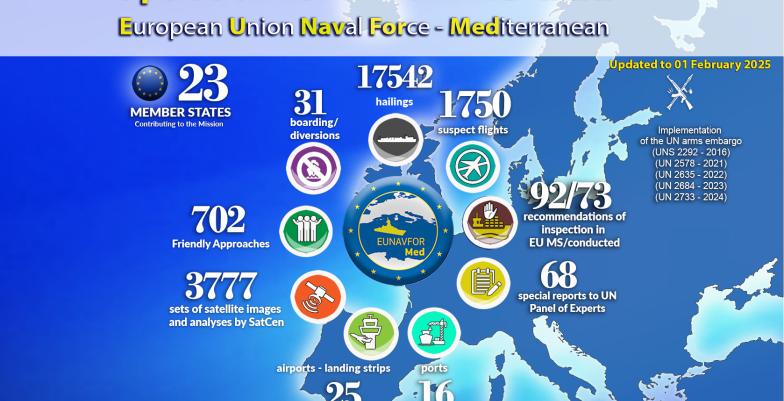Enhancing climate security and defence
Climate and security nexus: five critical risks to tackle
Climate change and environmental degradation are existential threats to Europe and the world. In 2024, for the first time, the world breached 1.5C global warming target . The climate crisis is accelerating at an unprecedented pace: From extreme heat in North Africa and the Sahel, to unprecedented rainfall and landslides in South Asia and South America, to wildfires in the Americas, making these the most affected continents during 2024, as well as record-setting droughts affecting more than 55 million globally per year. Europe is the fastest-warming continent in the world. In 2024, the European Environmental Agency identified 36 climate risks with potentially severe consequences across Europe.
Climate change is a risk multiplier that can exacerbate already precarious situations. Climate risks can cascade from one system or region to another. Cascading climate risks can lead to system-wide challenges affecting whole societies, with vulnerable social groups particularly affected.
The Climate and Security Trend Analysis commissioned by the EU identifies identifies five critical pathways through which climate change exacerbates security risks:
- Climate and environment aggravated scarcity of water, food or land exacerbate social and political tensions, resource conflicts, and disrupt agricultural production;
- Climate change disrupt livelihoods and human mobility, affect communities across all sectors of the economy, straining urban governance and social cohesion.
- Global climate commitments on net-zero emissions are growing, but achieving a just energy transition require balancing geopolitical complexities and critical mineral demands with equitable socioeconomic considerations to prevent new forms of inequality and vulnerability.
- Climate change, environmental degradation, and biodiversity loss amplify security threats and illicit economies, disproportionately affecting Indigenous Peoples and local communities.
- As the effectiveness of climate action and financial decisions impact government legitimacy, the one billion living in fragile and conflict-affected states will bear the highest costs.
Read the latest reports
The EU approach to climate and security
Through its Joint Communication on the climate and security nexus adopted in 2023, the EU invests in tackling the effects of climate change and environmental degradation that accentuate threats to peace, stability and security and risk undermining European defence. In its Conclusions on Green Diplomacy and also in the Conclusions on Security and Defence in 2024, the European Council welcomed the Communication and called for its swift implementation.
The EU approach to climate and security focuses on:
- Developing enhanced evidence-based analysis and foresight, which allows the EU to deliver, among other things, more effective early warning systems as well as a great understanding of the indirect effects of climate change and environmental degradation.
- Analysing the impact of a changing climate on EU external action policies and activities, member States will be better able to adapt to existing and potential threats including greater displacement, migratory movements, pandemics, social unrest, instability and even conflicts.
- Adapting Member States’ civilian and military capabilities and infrastructure for increasingly challenging climate conditions, thus improving the sustainability and efficiency of operations.
In addition to existing climate risk assessments, a 2024 Progress Report provides a comprehensive overview of EU action in this area.
The CSDP Climate Security Package
The Common Security and Defence Policy (CSDP) Climate Security Package places environmental advisers in EU crisis management missions from the Horn of Africa to Ukraine. Some missions also deploy experts on environmental crime. The experts address environment and climate-related security challenges linked to the missions mandates. This may include raising awareness and advising security forces on protecting natural resources and tackling resource exploitation, building capacity to investigate and prosecute environmental crime and making construction projects with partners more environmentally sustainable.
- EU Capacity Building Mission in Somalia (EUCAP Somalia): Protection of vital marine food resources is important to revitalise Somalia’s blue economy and to re-establish livelihoods. Handling of sea pollution is one of the element to protect these resources and to ensure sustainability. The civilian EUCAP Somalia mission develops skills of stabilisation and maritime police, including to respond to accidents in the sea. The mission has trained Somali maritime police and donated equipment enhancing the partners’ capacities to tackle oil spills.
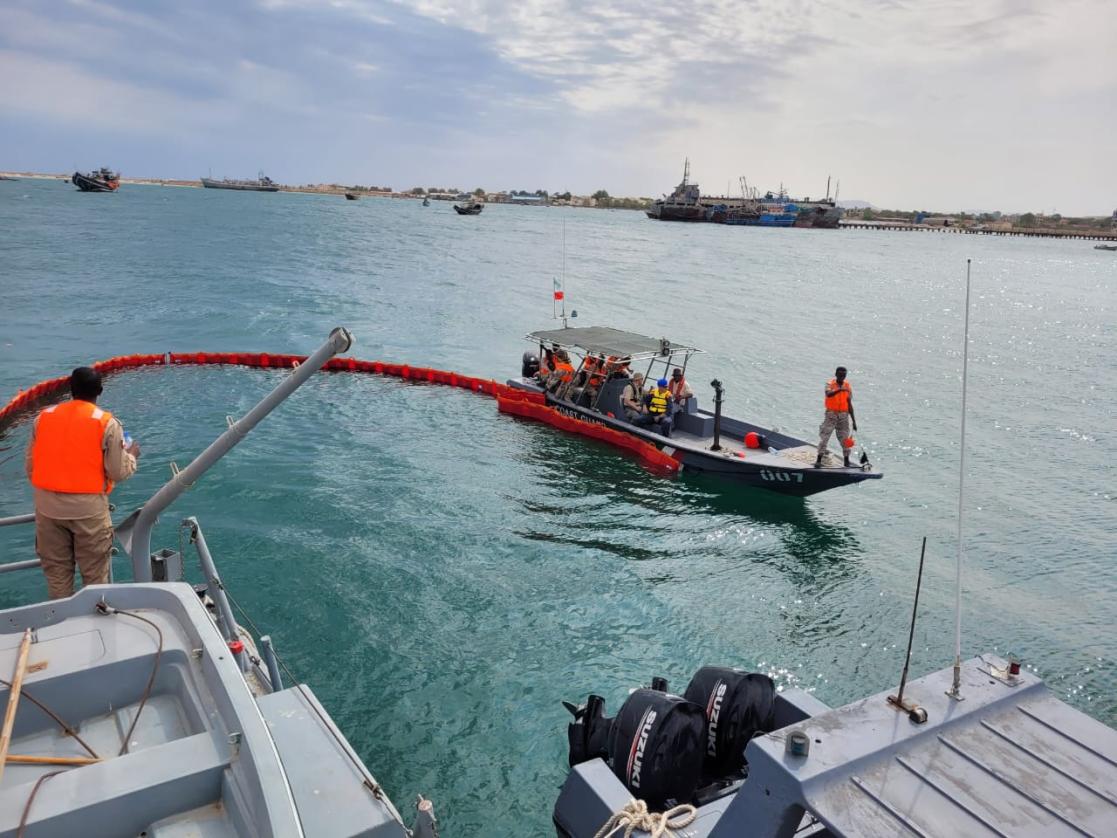
European Union, 2025
[Image: an oil spill preparedness exercise supported by EUCAP Somalia]
- EU Advisory Mission in the Central African Republic (EUAM RCA): The Central African Republic (CAR) is rich in natural resources, especially forests, which are crucial for both biodiversity and local livelihoods. However, weak enforcement capacity has made CAR a key hub for illegal trade in timber, wildlife, diamonds, and gold, fuelling organised crime and environmental degradation. EUAM RCA advises the internal security forces in CAR, including on strengthened collaboration between security agencies, customs, and the Ministry of Water and Forests. This is essential for detecting and seizing illegal resources and curbing the trafficking of protected species. The mission also supports awareness-raising campaigns, and the drafting and implementation of legislation to combat these activities.
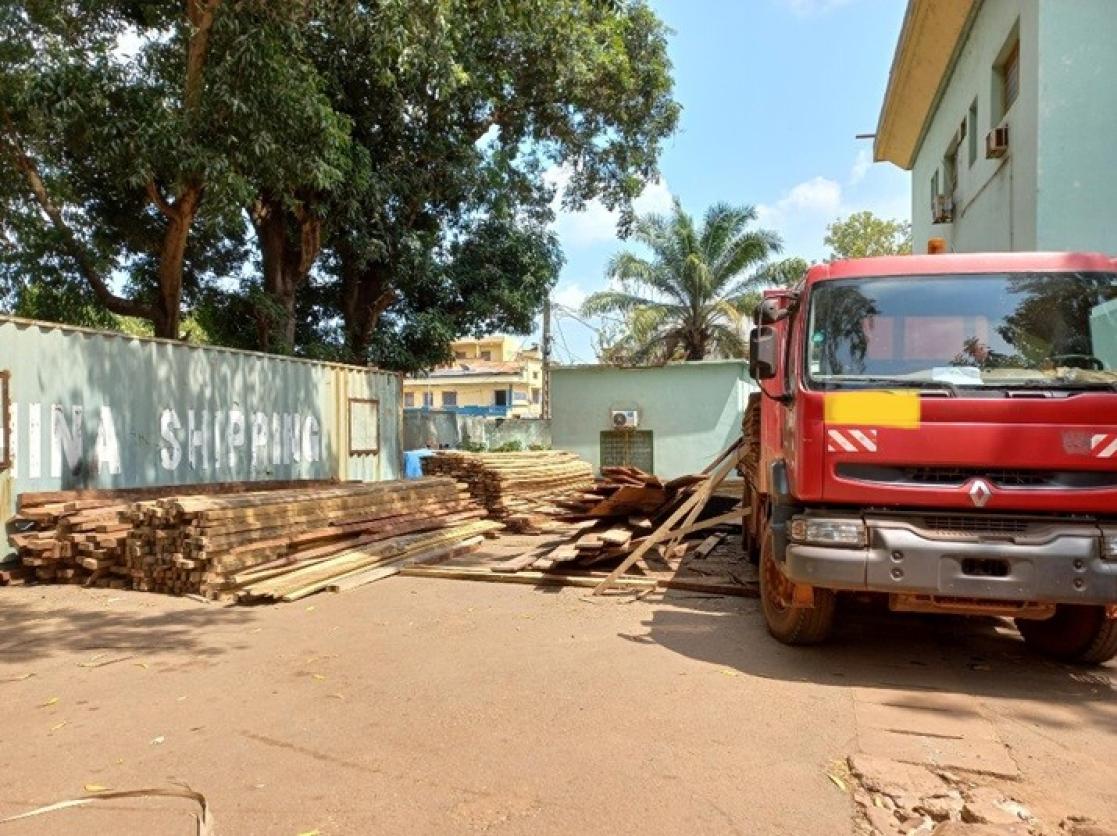
European Union, 2025
[Image: EUAM RCA supporting internal security forces in seizing illegally-traded resources including timber.]
EU Rule of Law Mission in Kosovo (EULEX Kosovo): Environmental crime is one of the most lucrative types of crime in the world. It attracts organised crime groups and other criminal actors thanks to weak law enforcement, low detection rates and sentences. When working on security sector reform, CSDP missions have a unique opportunity to promote the drafting and enforcement of environmental crime laws, as well as building investigative capacity. In Kosovo, EULEX Kosovo and the NATO-led mission Kosovo Force (KFOR) collaborate to support the counterparts in the handling of toxic industrial waste. KFOR inspects, reports and suggests how the waste handling can be improved, while EULEX Kosovo facilitates the cooperation with the Ministry of Environment, Spatial Planning and Infrastructure and the State Prosecutor, with a mandate to enforce the improvement of storing conditions.
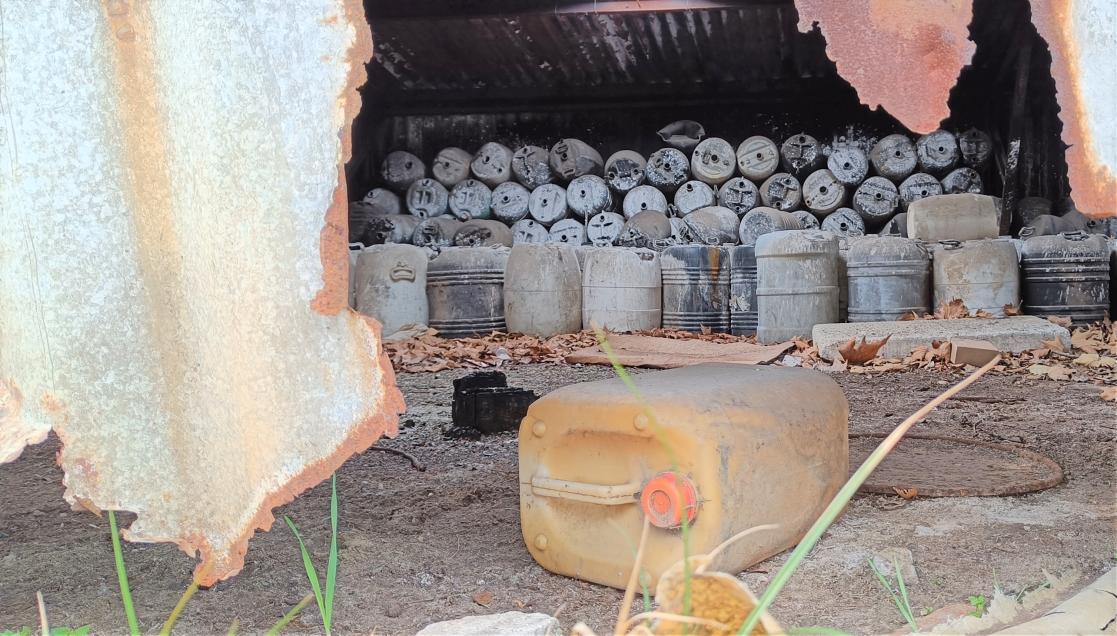
European Union, 2025
[Image: EULEX Kosovo and the NATO-led mission Kosovo Force (KFOR) collaborate to support counterparts in the handling of toxic industrial waste.]
The ESDC Climate Change, Security and Defence (CCESD) Training Platform
The CCESD Training Platform creates a one-stop-shop meeting the quickly expanding training needs of managers, planners and advisers.
CCESD Capacity building initiatives - training
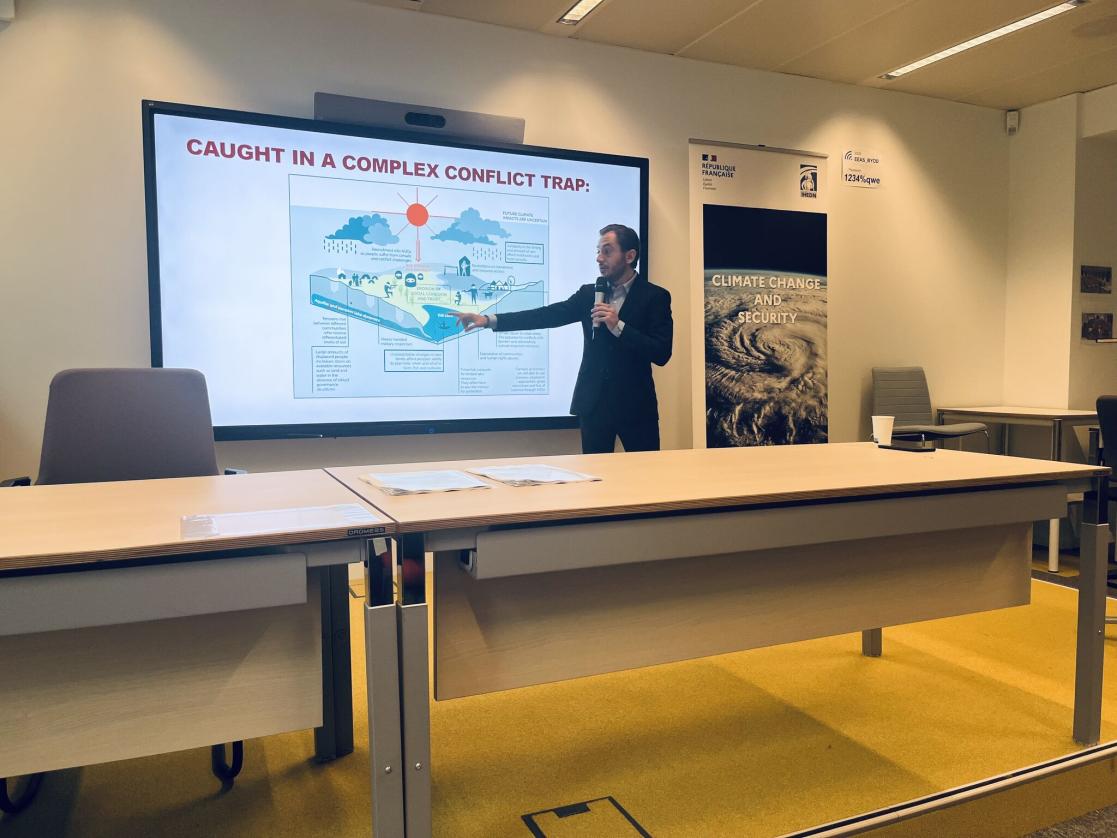
Adelphi, 2025
In October 2024, the ESDC Course on Climate Change & Security was delivered the third time in 2024, with 24 participants (12 civilian, 7 military, and 5 diplomatic) from EU institutions and Member States, as well as from International Organisations, including UN and NATO. Co-organised with adelphi and the Institut des hautes études de défense nationale (IHEDN), this Brussels-based 3-day training focused on raising awareness about the impacts of climate and environmental degradation on peace, security, and defence.
Key topics covered included:
- Climate Security: Understanding the connection between climate change, environmental degradation, peace, security, and defence, and its relevance to foreign policy.
- Integrating Climate Risks: How to address climate-related security risks in fragile, conflict-affected regions, using the Lake Chad Basin as a case study.
- Climate resilience: Understanding how climate change mitigation and adaptation efforts support a climate-resilient and sustainable European security and defence, from an energy-defence perspective.
- Role of International Organisations: The role of institutions like the European Union, United Nations, and African Union in incorporating climate security into their policies.
EU Dialogue and Peace Mediation
The EU Peace Mediation Guidelines (2023) acknowledge that climate change presents an immediate threat multiplier to international peace and security. As a result of climate change and environmental degradation, the number of conflicts involving natural resource disputes can be expected to rise. Arable land, pasture, critical minerals, water, forestry are examples of these types of resources.
The EU has supported local peace mediation and dialogue initiatives in a range of contexts in West and Central Africa, with a particular focus on mediating agro-pastoral conflicts related access to natural resources. In Ghana, The EU partnered with a local mediator, accepted by the communities in two transhumance hotspots. The mediator was able to diffuse tensions between herders and farmers, reaching an agreement for a peaceful start of the 2024 transhumance.
European Climate and Defence
The Guidance on Advancing Sustainable Energy in Defence, developed under the auspices of the Consultation Forum for Sustainable Energy in the Defence and Security Sector has completed the analysis of the EU fit-for-55 energy transition policy and legislative framework’s impacts and opportunities for the defence sector. The Consultation Forum published as well as 30 project ideas and 15 research studies as blueprint to further improve sustainable energy in defence.
Further reading
EU Climate Change and Defence Roadmap (2021)
EU Concept on an EU Integrated Approach to Climate and Security 2022
Joint Progress Report on Climate, Defence and Security 2020-
2022: Implementing the Climate Change and Defence Roadmap and the Concept for an Integrated Approach on Climate Change and Security
EU Joint Communication ‘A New Outlook on the climate and security nexus’ (2023)
Council Conclusions on Green Diplomacy, welcoming the Joint Communication (2024)
Council Conclusions on Security and Defence, welcoming the Joint Communication (2024)
Progress Report on the Implementation of the EU Joint Communication 'A New Outlook on the Climate and Security Nexus'
Climate and security is included as part of the EU Common Foreign and Security Policy
CSDP Civilian Compact (2018)
EU Strategic Compass for Security and Defence (2022)
Safer together: Strengthening Europe’s civil and military preparedness (2024)








